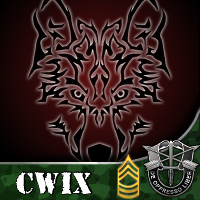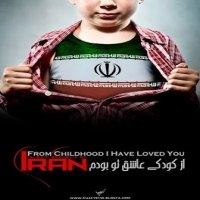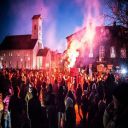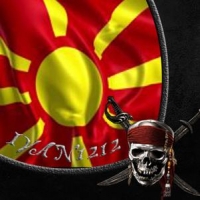![]() Publicado em Iran - Entreterimento e interações sociais - 21 May 2016 08:16 - 14
Publicado em Iran - Entreterimento e interações sociais - 21 May 2016 08:16 - 14
The Iranian art is one of the richest art heritages in the world which reunites multiple disciplines such as calligraphy, painting, weaving, pottery
or architecture. The amazing diversity and harmony of Iran’s art collection are illustrated in six volumes of the great scientist’s work of a lifetime, Arthur Upham Pope.
Artistic concerns existed in Iran before the Arab invasion, but all have reached their peak during the Islamic point, and became highly influenced by religion. Their favorite art motifs were geometrical decorative shapes like rhombus, medallions or winding lines, often very complicated and highly stylized real or fantastic animals such as: lions, elephants, peacocks and griffins.
Calligraphy, another fine Persian art, began to develop shortly after the Arab invasion and during their long history standing Iranians have used three major alphabets: cuneiform writing, the time of Sanid Pahlavi’s scripting and Arabic scripting. Aesthetic value of writing has always been treasured in Iran, but only during the Islamic occupation, calligraphy had become a major concern. Mosaic art in Iran developed since 6th century and bloomed in near the 8th to 10th century. The technique is known since Mesopotamia, where the mosaics were made of small pieces of soft stone, but in the Islamic world, the mosaic art developed significantly. One of the most beautiful architectures from Iran as an example for the exquisite Persian mosaics is the Imam Mosque raised in 17th century. On it’s construction were used only blue and yellow tiles. In the twentieth century, Iranian painting found it’s expressivity and genius in the works of Mohhamad Ghaffari known as the first artist to introduce European realism in Iranian painting. The most significant artists of the contemporary art in Iran are Mahmud Farshchian, Abbas Rostamian, Hossein Mahjubi, Parviz Kalantari. Among their favorite topics include pairs of lovers dressed in traditional robes, polo matches and hunting scenes.
or architecture. The amazing diversity and harmony of Iran’s art collection are illustrated in six volumes of the great scientist’s work of a lifetime, Arthur Upham Pope.
Artistic concerns existed in Iran before the Arab invasion, but all have reached their peak during the Islamic point, and became highly influenced by religion. Their favorite art motifs were geometrical decorative shapes like rhombus, medallions or winding lines, often very complicated and highly stylized real or fantastic animals such as: lions, elephants, peacocks and griffins.
Calligraphy, another fine Persian art, began to develop shortly after the Arab invasion and during their long history standing Iranians have used three major alphabets: cuneiform writing, the time of Sanid Pahlavi’s scripting and Arabic scripting. Aesthetic value of writing has always been treasured in Iran, but only during the Islamic occupation, calligraphy had become a major concern. Mosaic art in Iran developed since 6th century and bloomed in near the 8th to 10th century. The technique is known since Mesopotamia, where the mosaics were made of small pieces of soft stone, but in the Islamic world, the mosaic art developed significantly. One of the most beautiful architectures from Iran as an example for the exquisite Persian mosaics is the Imam Mosque raised in 17th century. On it’s construction were used only blue and yellow tiles. In the twentieth century, Iranian painting found it’s expressivity and genius in the works of Mohhamad Ghaffari known as the first artist to introduce European realism in Iranian painting. The most significant artists of the contemporary art in Iran are Mahmud Farshchian, Abbas Rostamian, Hossein Mahjubi, Parviz Kalantari. Among their favorite topics include pairs of lovers dressed in traditional robes, polo matches and hunting scenes.
Patrocinador
FerifakComentários (14)

v+sub

v+s

من برای شما ساب کردم لطفا برای من رو هم ساب کنید

خیلی عالی کاش متن فارسیش هم اضافه میکردی

www.erevollution.com/es/article/8011 s4s

Kk

svc

cbdfcb

v / s

V+S

V





